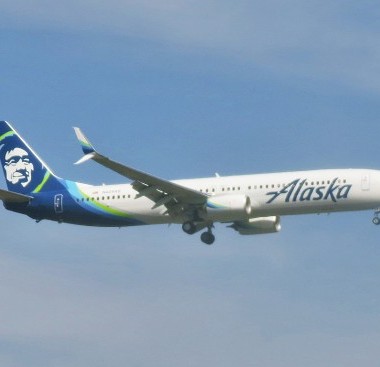Boeing’s safety record under scrutiny in two hearings
Boeing Co.’s safety culture will come under public scrutiny today as two separate Senate hearings pore over a whistleblower’s claims of poor assembly processes and shortcomings revealed in an extensive study commissioned by Congress.
Besides the whistleblower — a Boeing engineer who worked on the 787 program for several years — senators plan to call on safety experts including from NASA and academia to address gaps in the company’s frayed safety net. But Boeing officials won’t be present at either session, with leaders such as Chief Executive Officer Dave Calhoun expected to face lawmakers at a later date.
The overlapping sessions underscore the intense glare on the US planemaker as it faces a crisis of confidence following an unnerving close call involving its 737 Max earlier this year.
The Senate’s Permanent Subcommittee on Investigations will hear from a Boeing quality engineer, who alerted US regulators to alleged manufacturing changes by the company that he says could weaken the structure of the 787 Dreamliner aircraft over time. The allegations have sparked an investigation by the Federal Aviation Administration, while investors have been rattled by the prospect of further disruption to the 787, a critical source of cash, after a nearly two-year halt to deliveries.
‘Broken’
The whistleblower, Sam Salehpour, will be joined by others to discuss what the panel has called a “broken safety culture” at Boeing during the hearing, led by Senator Richard Blumenthal, the Connecticut Democrat who chairs the session.
In a detailed briefing and factory tour with reporters Monday, Boeing engineering executives dismissed the whistleblower’s claims that its 787 aircraft was in danger of premature structural damage, saying the carbon-composite frame had shown no signs of fatigue over more than a decade of testing.
The planemaker also denied Salehpour’s allegations that it took shortcuts in the production process, including ignoring potential debris that fell into tiny structure gaps or using excessive force to join the carbon-fiber barrels. The company said it has found no evidence of structural weakening in the more than 900 jets manufactured with the techniques that Salehpour criticized.
Also on Wednesday, the Senate Commerce Committee will delve into a damning review of the company’s safety culture by a panel of experts convened by the FAA. Published in February, the report faulted Boeing for ineffective procedures and a breakdown in communications between senior management and other members of staff. The hearing will be led by Senator Maria Cantwell, the Washington Democrat whose state is home to Boeing’s 737 Max factory.
‘Got It’
Javier de Luis, an aerospace engineer and lecturer at the Massachusetts Institute of Technology, plans to tell that committee that the planemaker’s pace and commitment to change falls short of what’s needed after two 737 Max crashes in 2018 and 2019 killed 346 people, including his sister.
In written remarks prepared for the hearing, de Luis cited what he called “distressing” comments last month by Boeing Chief Financial Officer Brian West, who said the emphasis of aircraft production over quality needs to change and that company leadership “got it” after the Jan. 5 accident, in which a fuselage panel blew off an 737 Max 9 shortly after takeoff.
“I would have thought that they would have ‘gotten it’ five years ago,” de Luis said in the written remarks.
Since a Boeing 737 Max 9 aircraft suffered the loss of the fuselage section, the FAA has tightened oversight of Boeing, forcing the company to slow down production and sending staff into their factories to review processes. The manufacturer has been given 90 days to come up with a comprehensive response and fix its production.
US investigators have said the plane involved in the accident was apparently missing four key bolts meant to hold the piece in place, an oversight that occurred on Boeing’s final assembly line.
Calhoun, who has said he plans to step down by the end of the year, hasn’t publicly determined if or when he might participate in any hearings. He’s met with officials at the FAA to discuss the company’s response to the safety crisis.
Airline customers have meanwhile lamented that Boeing’s woes are rippling through to their operations, with the fewer planes delivered putting pressure on flight schedules and driving up costs.
Similar Stories

Silk Way Alat Free Economic Zone Company and Modern Construction Group sign landmark agreement
View ArticleCPaT announces new contract with expanding airline, Blue Jet Airways KG
CPaT Global, the world’s leading provider of distance learning for the airline and aviation industry, today announced a new contract with Blue Jet Airways KG. CPaT will provide Blue Jet…
View Article
Norse Atlantic expands to Stockholm with new direct flight to Bangkok
View Article
LATAM Cargo Group launches pioneering initiative in Chile with recycled plastic pallets
View Article
WorldACD Weekly Air Cargo Trends (week 46) - 2024
View Article
Freightos and E2open integrate to simplify air cargo bookings
View ArticleGet the most up-to-date trending news!
SubscribeIndustry updates and weekly newsletter direct to your inbox!





